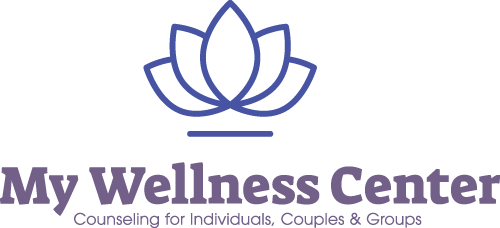Involuntary childlessness, as the term suggests, is when an individual or couple is unable to have children—despite the desire to do so. Across the United States, millions of people suffer through involuntary childlessness every year.
Therapy for involuntary childlessness can help. Through therapy, you can move beyond the emotional pain of involuntary childlessness and either explore solutions or come to accept the inability to have children.
Jump to the section you need for additional information!
What Is Involuntary Childlessness?
How Many People Are Involuntarily Childless?
What Are the Biggest Causes of Involuntary Childlessness?
Therapy for Involuntary Childlessness
Case Studies: Therapy for Involuntary Childlessness
Pittsburgh Therapy for Involuntary Childlessness
What Is Involuntary Childlessness?
Involuntary childlessness is when an individual wants children but doesn’t have children, often because of medical reasons.
As we’ll discuss later, however, there are many reasons an individual could be involuntarily childless, including partner disagreements, financial limitations, and failed adoptions.
Involuntary childlessness is the opposite of voluntary childlessness, which is when someone willingly decides not to have a child.
How Many People Are Involuntarily Childless?
A 2021 report from the U.S. Census Bureau found 16.5% of adults 55 and older are childless. But in many cases, these individuals chose to be childless.
Studies have found about 6% of women and 4% of couples are involuntarily childless. That may seem like a small amount of people—until you consider that the United States has about 108 million adult women and 61 million married couples.
That means about 6.5 million women are involuntarily childless and more than 2.5 million couples are involuntarily childless.

What Are the Biggest Causes of Involuntary Childlessness?
In working with our clients, we’ve uncovered a wide variety of reasons people become involuntarily childless. Some of the most common reasons for involuntary childlessness:
1. Medical Reasons
A person experiencing medical limitations is one of the most common reasons for involuntary childlessness. Problems with hormones, medications, surgeries, or diseases could limit an individual’s ability to reproduce and could even lead to sterility.
While medical interventions like IUI and IVF can help, these procedures can be expensive and emotionally exhausting, preventing some couples from ever seeking treatment.
2. Partner Disagreements
Partner disagreements over whether or not to have children are another major cause behind involuntary childlessness.
In many cases, a couple will commit to each other fully knowing that the other person disagrees with their views on children—but they both believe the other person will change.
This is why it’s essential to come to a mutual commitment to or against having children before entering a fully committed relationship, especially marriage. When one person sacrifices their wants for the other, it could become a source of resentment and even lead to divorce later on.
3. Financial Instability
Financial stability can be another deterrent when it comes to having children. Investopedia estimates it costs $310,605 to raise a child to their 17th birthday. Although that amount varies by living expenses and lifestyle, the fact remains: having a child is expensive.
For people living near, at, or below the poverty line, affording a child can be incredibly difficult—even with government assistance. Even for families who aren’t near the poverty line but are currently living paycheck to paycheck, supporting a single child could throw their personal finances out of control.
4. Failed Adoptions
While adoption can be a viable option for couples who are physically incapable of having children, the adoption process can prove more difficult than some people expect. In addition to being financially taxing and emotionally draining, adoptions sometimes simply don’t work out.
We know of one heartbreaking story in which a family adopted a child immediately after birth, only for the birth mother to change her mind before the end of the first month. Under Pennsylvania law, she had the right to take her baby back.
After a week with her child, however, she decided she was unready to be a mother, and the baby was returned to the adoptive family. But before the end of the second month, she once again decided she wanted her baby, and the child was once again returned to her.
Such problematic adoptions can be heartbreaking for everyone involved, and they can cause some couples to turn away from adoption as a viable option altogether.

Therapy for Involuntary Childlessness
There are a couple of different therapies we promote for involuntary childlessness, including:
- ACT Therapy – Acceptance and Commitment Therapy: ACT Therapy is the mindful practice of focusing on the present moment without outside influences. Instead of focusing on problems or intense emotions, ACT pushes patients to focus on solutions to their problems. In the case of involuntary childlessness, potential solutions include medical intervention, adoption, and improved financial stability. Through therapy, we can work to explore the best solutions for your individual needs and lifestyle.
- EMDR Therapy – Eye Movement Desensitization and Reprocessing Therapy: EMDR Therapy is a therapeutic technique that works by activating the entire brain as a patient works through painful memories. This allows them to “rewire” the brain and disconnect the painful emotions from the memory itself. Our Pittsburgh EMDR Therapy can provide a long-term solution to your emotional trauma.
Both therapy techniques can be impactful in helping to accept and move beyond the trauma and struggle of involuntary childlessness.
Case Studies: Therapy For Involuntary Childlessness
Here are a couple of ways we’ve helped clients through their journeys with involuntary childlessness:
Involuntary Childlessness Case Study 1
A man in his 30s comes to our office every week because he’s desperate to have children but is in a committed long-term relationship with a woman who’s uninterested in starting a family. This man is terrified of addressing the situation because he’s scared of losing his significant other.
During each session, we talk through his struggles and prepare him to finally have the conversation with her.
Involuntary Childlessness Case Study 2
A couple was struggling to have kids. While this was troubling enough for the couple, they experienced additional guilt and pressure from their family members. The in-laws were quick to express their sadness, and the grandparents were equally upset.
Through therapy, we were able to address the couple’s concerns and better equip them to handle their family members’ emotions.
Pittsburgh Therapy for Involuntary Childlessness
You can find Pittsburgh therapy for involuntary childlessness at My Wellness Center. Our experienced therapists are available to work through a variety of family-related issues, including Adoption Counseling Services and Perinatal & Postpartum Counseling Services.
Contact us to get started, and we can help you overcome the emotional challenges of involuntary childlessness.

